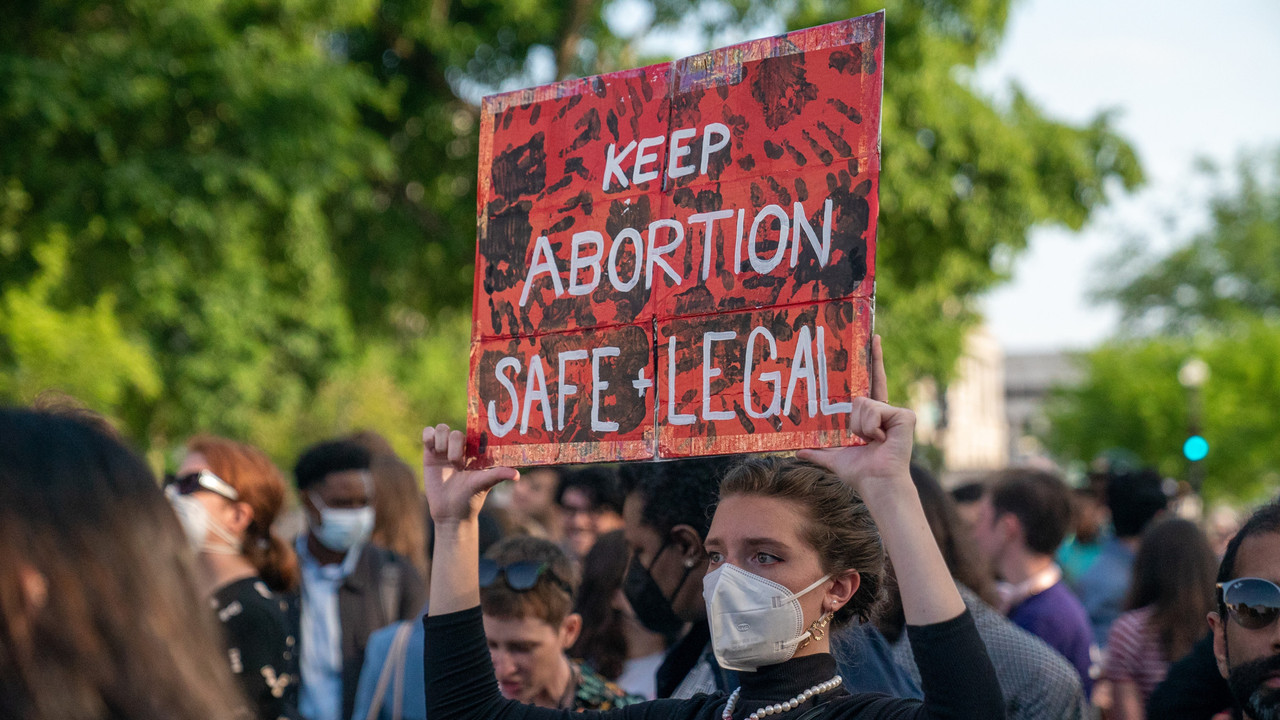At the start of May, news that the US Supreme Court was aiming to strike down Roe v. Wade and reverse a series of laws on reproductive and abortion rights in the US caused an outcry among women’s rights activists in the country and beyond its borders. Citizens, especially those who may have to resort to an abortion at some point in their life, worry about the future of what seemed like an untouchable right.
Delano talked to Catherine Chéry, the director of Planning Familial, an association that among other services offers abortion treatment and support to women and girls in Luxembourg.
A right since 2014
For eight years now, women in the grand duchy have been able to request an abortion up to the 12th week of a pregnancy. For adults, an initial appointment with a gynaecologist dates and locates the pregnancy--as a pregnancy outside the uterus needs different treatment. Then, the patient must wait three days, during which she may or may not change her mind, before undergoing treatment.
Before the 8th week, women take medication to abort the fetus. They can obtain this at Planning Familial or their doctor’s office. Chéry describes the pain “like period cramps”. If the pregnancy is older than seven weeks, a surgical procedure has to take place in a hospital.
Minors, like adults did before 2014, have to meet with a psychologist first, to establish whether they want to abort or not, before signing a form . They have to be accompanied by a parent, legal guardian or other adult that they trust to undergo the procedure.
Even if a woman notices too late that she is pregnant, “there is no exception in Luxembourg,” Chéry explains. “In Luxembourg, it’s quite difficult to have access to an abortion beyond the first trimester. Two qualified experts have to confirm that there is a grave threat to the woman or the child’s health.”
When there is a will
“If a woman doesn’t want a pregnancy, she will find a way to make it stop. Either by taking risks--and believe me, we’ve seen it at Planning Familial--by buying medication online. This makes them risk a haemorrhage,” the director says. “Or they will do what women in Luxembourg did in the past: they will cross the border.”
The act is in itself not in the penal code, but, if a woman were to get an abortion in the Netherlands--where the limit lies at 22 weeks---beyond the 12-week period, and a person in Luxembourg sued her, she could still be fined between €251 and €2,000.
Unwanted pregnancies can happen to anyone, though, Chéry explains. The average age of women who terminate their pregnancy through the NGO is 28, and 65% of women who do not want to keep the child are over 25 years old. “This can touch any woman.”
Contraception, if accessible, isn’t always reliable. A stomachache or other medication can interfere with the pill, for instance. Chéry explains: “If a woman wanted to have two children and not more during her fertile years, she’d have to be careful more than 7,000 days.” As a result, “you can go through an unwanted pregnancy at any point of your reproductive years.”
The cycle of stigma and taboo
“It’s not in one day that you’ll erase all the years in which it was considered a criminal act, so imagine the guilt and the shame” that women have to go through when they accidentally get pregnant, says Chéry. The mentality which puts the responsibility of protection solely on women also puts the blame on women, as they are told to better protect themselves to avoid a pregnancy. “But some women don’t have access to contraception” in the first place.
Ultimately, the lack of transparency is what feeds the issue. There are no government studies or statistics on the number of abortions in Luxembourg. Media also rarely covers the subject, Chéry says. “The stigma around abortion still exists because the subject remains taboo.”
She continues: “Even if the law has been taken out of the penal code and integrated into the health code--and making it a public health question, it’s not a normal act” in the public mind. The lack of discussion around abortion creates guilt and shame among those who resort to it.
While she considers that the change in law in 2014 was needed, Chéry wonders if perhaps the law was faster than customs and public opinion. For the director who has been at the helm of the NGO since 2003, “it’s important that it’s there. It’s just the taboo that needs to be lifted, there needs to be a mentality shift where women have a right on their own bodies.”
An endless fight for women’s rights
What the situation in the US, and the taboo in Luxembourg, ultimately show is society’s need to restrict women’s autonomy and power over their own bodies, concludes Chéry: “I think that the rights of women aren’t acquired. Even in a country like the US, where women had legal access to abortions for fifty years,” their rights are in danger. For Chéry, this shows that women “always have to remain alert.” She adds: “You can never lower your guard when you’re a woman or part of a minority”
The pandemic did not help, as it caused countries with restrictive laws to be even more severe, like in Poland. The only way to protect women’s rights and to lift the guilt and shame around abortion, is to talk about it openly. Chéry explains that sexual and emotional education in school doesn’t address the topic enough yet, when “it’s not information that leads to risks, but the lack thereof.”
In the meantime, the NGO in collaboration with Esch2022 in November will create a performance where testimonies of women who aborted a pregnancy and included it in their narrative without shame will be presented. The booklet collecting these stories might bring comfort and take other women out of their isolation, Chéry hopes.
